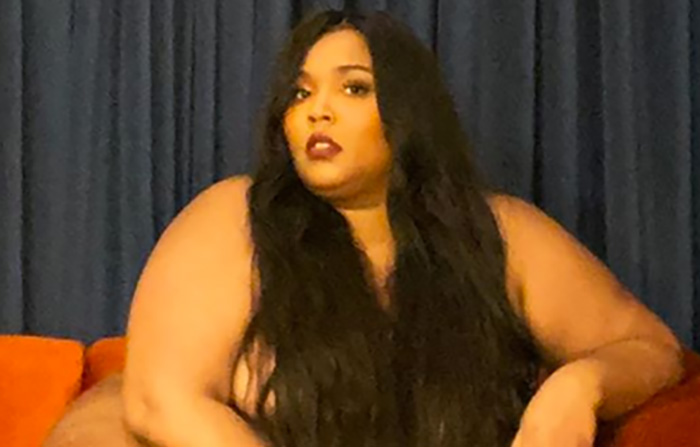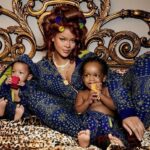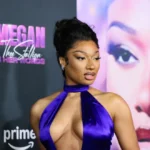Bruno Mars is at the center of a cultural appropriation debate. The singer’s name has been trending on social media after a video began circulating, in which the host argues that Mars is
“100 percent a cultural appropriator” who “plays up his racial ambiguity to…cross genres.”
She goes on to claim that Mars is a “karaoke singer” who recreates “pre-existing work” without improving upon the original.
“We want our black culture from non-black bodies,” she adds. “And Bruno Mars is like, ‘I’ll give it to you.’”
At least one version of the clip has garnered more than 421,000 views on Twitter, while the original video from The Grapevine has earned 27,000 views on YouTube.
The widespread criticism resulted in a debate about race, colorism, and appropriation, with some agreeing with the writer’s declaration, and many fighting back.
“Bruno Mars is literally the LEAST problematic musician out here and y’all want to bash him for making Bops that everyone and their grandma can dance to?” asked one Twitter user. “I mean all that energy can be used for calling out ACTUAL culture vultures.”
Another added:
“Y’all are just trying to find reasons to hate Bruno Mars.. if he’s not your cup of tea then he’s not your cup of tea but to say that he isn’t talented and appropriates black culture to validate your argument is wack.. just say you don’t like him and move on.”
Bruno Mars is literally the LEAST problematic musician out here and y’all want to bash him for making Bops that everyone and their grandma can dance to? I mean all that energy can be used for calling out ACTUAL culture vultures but… 😒 pic.twitter.com/iBfm4OR32m
— Tara A N G E L 🗝☮⚛ (@TaraAngel94) March 9, 2018
Y’all are just trying to find reasons to hate Bruno Mars.. if he’s not your cup of tea then he’s not your cup of tea but to say that he isn’t talented and appropriates black culture to validate your argument is wack.. just say you don’t like him and move on
— Ja’Von Ongele (@JaiTheLioness) March 9, 2018
The Hawaiian-born Mars has been open about his race in the past. His mother’s heritage can be traced back to the Philippines and Spain, while his father is Puerto Rican and Jewish.
“There are a lot of people who have this mixed background that are in this gray zone,” he explained during an interview with Latina in 2017. “A lot of people think, ‘This is awesome. You’re in this gray zone, so you can pass for whatever the hell you want.’ But it’s not like that at all. It’s actually the exact opposite. What we’re trying to do is educate people to know what that feels like so they’ll never make someone feel like that ever again. Which is a hard thing to do. Because no one can see what we see and no one can grow up with what we grew up with. I hope people of color can look at me, and they know that everything they’re going through, I went through. I promise you.”
During that same interview, Bruno opened up about his respect for “black music.”
“When you say ‘black music,’ understand that you are talking about rock, jazz, R&B, reggae, funk, doo-wop, hip-hop, and Motown,” he said at the time. “Black people created it all. Being Puerto Rican, even salsa music stems back to the Motherland [Africa]. So, in my world, black music means everything. It’s what gives America its swag.”
“I’m a child raised in the ’90s. Pop music was heavily rooted in R&B from Whitney, Diddy, Dr. Dre, Boyz II Men, Aaliyah, TLC, Babyface, New Edition, Michael, and so much more,” he added. “I wouldn’t be here if it wasn’t for these artists who inspired me. They have brought me so much joy and created the soundtrack to my life filled with memories that I’ll never forget.”

![Da Brat Marries Judy Dupart on 2.22.22 [PHOTOS]](https://hiphopucit.com/wp-content/uploads/2022/02/1645669184565-440x264.jpeg)
![Drake Reveals Photos of His Son Adonis [Photos]](https://hiphopucit.com/wp-content/uploads/2020/03/Drake-and-on-Adonis-HHUCIT.jpg)

![Megan Thee Stallion – “BOA” [NEW VIDEO]](https://hiphopucit.com/wp-content/uploads/2024/05/Megan_Thee_Stallion___BOA__Official_Video__1_12_screenshot-440x264.jpg)
![Doechii Feat. JT – “Alter Ego” [NEW VIDEO]](https://hiphopucit.com/wp-content/uploads/2024/05/Screenshot-of-Doechii-and-JTs-Al-440x264.png)
![Young Thug Feat. Drake Drop – “Oh U Went” [NEW VIDEO]](https://hiphopucit.com/wp-content/uploads/2023/07/Young-Thug-and-Drake-1014x570-1-440x264.png)
![Is Bruno Mars Cultural Appropriating? Twitter is in a Huge Debate Over it. [VIDEO]](https://hiphopucit.com/wp-content/uploads/2018/03/bruno-mars-24k-tour.jpg)
![CW’s New Series “LA Complex” Features a Gay Relationship in Hip Hop [VIDEO]](https://hiphopucit.com/wp-content/themes/Extra/images/post-format-thumb-text.svg)




